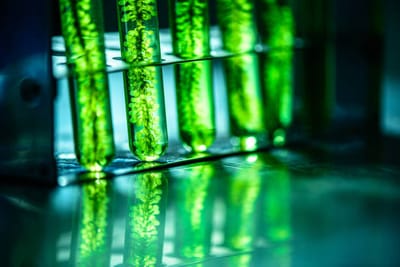THE LAB
The role of micro-algae in sustainable development, as well as their ability to massively fix CO2 and produce O2, will also be studied and monitored.
Temperatures, energy, hydrology at different levels, PH level etc. will be constantly controlled.
This research center will exchange with international researchers and university staffs specialized in micro-algae, meteorology and entomology. Experts will also be invited to visit the urban physic micro-algae farm and to study the impacts on site.
The study of the impact of micro-algae on air and water pollution and hydrology is a new discipline.
This multi-disciplinary activity seeks to provide key notions about the role of micro-algae and to give contextual results.
The term "micro-algae", covers a wide diversity of species with different physical and physiological properties: resistance to drought and evapotranspiration, colour and albedo, density , etc. Local meteorological conditions (sun, wind,and hydrology) vary significantly in the urban environment. Management also plays a major role which is complex to standardise.
Always on the lookout for new molecules that can play a role in sectors such as pharmaceutical, beauty, the food industry, agriculture, energy or the conquest of space, the Lab is a key element in the success of any project dealing with micro-algae.The impact of micro-algae in a polluted environment is no longer questioned, but adaptability remains a question which always requires a great deal of research.
Ecosystemic services are fundamental to the urban environment. Major cities and industries must confront demanding environmental objectives which may sometimes seem contradictory, such as densification to limit urban spread, biodiversity maintenance, anticipating and limiting climate change, the reduction of greenhouse gases and providing a healthy and agreeable environment for the inhabitants. These issues must be taken into account at every level of urban spatial intervention and be monitored over time. Concretely, this requires constant questioning about the role that micro-algae farms have to play in urban setting.
